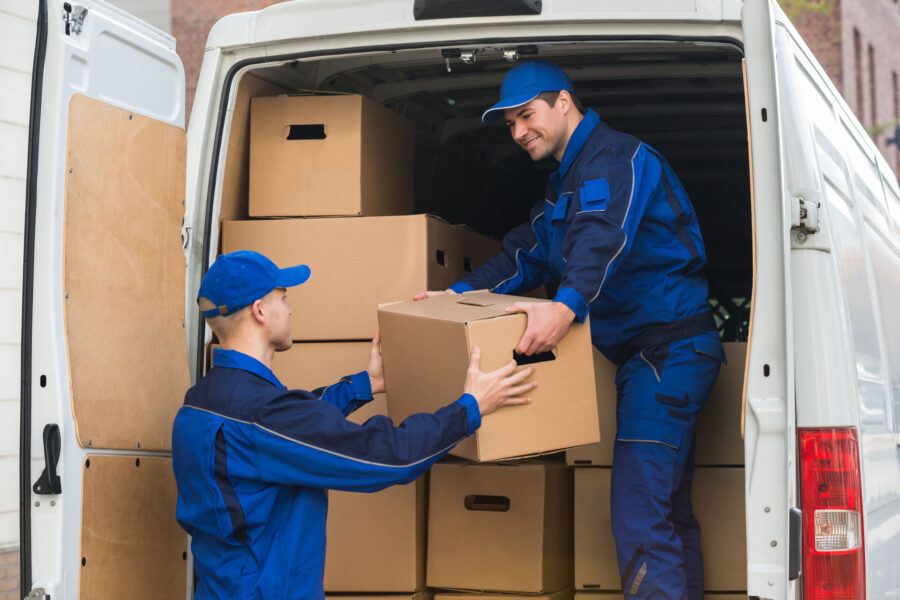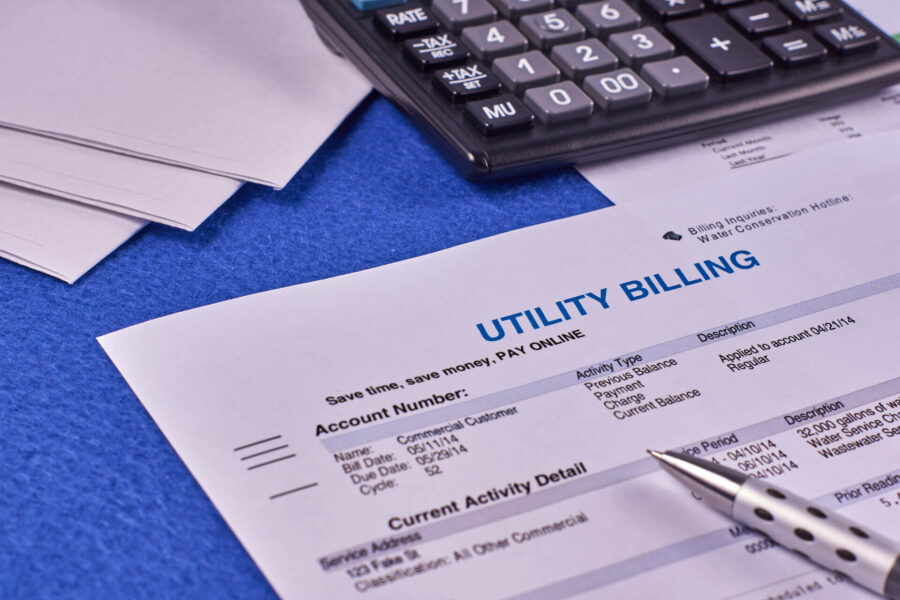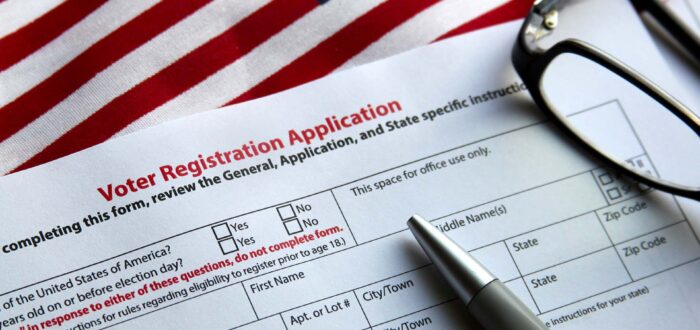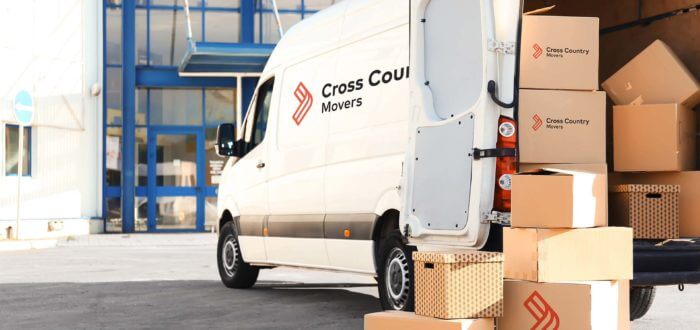

What to Do When You Move to a New State
Posted in Moving Essentials,Moving Tips & Tricks,Planning the Move on August 11, 2023
Relocating to another state is an exciting yet daunting endeavor, brimming with countless possibilities and challenges. So, what to do when you move to a new state? From addressing logistical matters like updating your address and transferring utilities to settling into the community, there are several key steps to ensure a smooth transition. This guide will outline the important actions to take in order to make your relocation stress-free and enjoyable.
If you are wondering what to do when moving to a new state, the most important thing is to start planning everything in advance. To make the preparation and logistics easier, consider hiring long distance movers. Next up, you’ll have to update a lot of legal and administrative information. Establishing residency and updating your address with relevant institutions is also crucial. Set up utilities in your home and notify the important parties about your relocation. Lastly, be sure to explore and get acquainted with your new city.
What to Do When You Move to a New State – Start Planning in Advance to Make the Move Easy
What to do when you move to another state? When you’re planning such a complex relocation, starting early can make the process significantly easier and help you avoid last-minute panic. As soon as you know you’re moving across the country, begin by creating a comprehensive relocation to-do list. This list should include researching and hiring a relocation company, decluttering your home, making a home inventory, and organizing the packing process. Having all the tasks written down will ensure you don’t forget anything.
Additionally, make a timeline for when to notify relevant parties about moving cross country, such as your employer, utility companies, bank, and postal service. Research the cost of living, laws, and regulations in another state to avoid any surprises. Consider the personal aspects of relocating, like saying bye to friends, exploring your future neighborhood online, and planning where things will go in your soon-to-be home. Long-distance moving can be stressful, but with a detailed plan and an early start, you can mitigate challenges and ensure a smooth transition.

Hire Cross-Country Movers to Assist You
Professional moving companies, such as Cross Country Movers, can significantly ease your relocation process. Expert movers possess the skills and experience to handle your belongings with the utmost care. They can offer efficient packing, loading, and transporting, ensuring your fragile items arrive safely at your residence. By leaving the physical relocation to the professionals, you can focus on other logistical aspects of the process.
Use a Variety of Cross-Country Moving Services
By hiring cross-country movers and utilizing their range of services, you can customize your relocation experience to suit your needs and reduce the relocation stress that often comes with relocating. Cross-country moving services offer a range of options to cater to everyone’s specific needs. These might include:
- Packing services – Professionals handle the packing of your belongings using high-quality packaging materials and techniques.
- Furniture disassembly and assembly – Expert movers can safely disassemble large items such as furniture for the move and reassemble them in your future home.
- Auto transport – Some companies offer car shipping services, so you don’t have to worry about driving long distances.
- Storage solutions – If you can’t ship everything at once, consider using the company’s storage facilities.

Update Your Legal and Administrative Information
Upon relocating to another state, it’s important to update your legal and administrative information. This step involves tasks such as updating your driver’s license, registering to vote, informing the postal service about your address change, and transferring medical records.
Establish Residency and Address
Establishing residency and securing a physical address is the first step after relocating to a different state. Your address serves as proof of residency and is required for many subsequent tasks. It can be established through rental agreements, utility bills, or mortgage documents.
Obtain a New State ID, Driver’s License, and Vehicle Registration
Once residency is established, obtaining a state ID or driver’s license is crucial. Visit your local Department of Motor Vehicles with the necessary identification documents and proof of address. Most states require you to update your driver’s license and vehicle registration within a certain time frame after establishing residency, usually 30 days. Check the Department of Motor Vehicles (DMV) website in your new state for specific instructions. Keep in mind that you may need to pass a driving and vision test to get a license.
Register to Vote in the State
Registering to vote is another crucial step. You can typically do this at the DMV when updating your driver’s license or through online platforms such as the US Election Assistance Commission’s website. Make sure to check voter registration deadlines to ensure you’re ready for the next election.
Notify the Postal Service of Your Address Change
To ensure your mail gets forwarded to your current address, notify the US Postal Service (USPS) about your relocation. You can do this online or at your local post office. Remember to inform banks, credit card companies, insurance providers, and other relevant institutions about your change of address too.
Transfer Medical Records and Find Healthcare Providers
Don’t forget about your health records. Request your current doctors to transfer your medical records to your future providers. If you have health insurance, check your policy regarding coverage in your state and find providers that accept your insurance. Online databases such as Healthgrades and referrals can be helpful for finding good doctors.

Research and Set Up Utilities and Services
Moving to another state means establishing connections for utilities and services. Researching and setting these up should be high on your to-do list to ensure your new home is comfortable and functional from the get-go.
Research and Contact Utility Providers for Electricity, Water, and Gas
Firstly, look up who the providers of electricity, water, and gas are in your area. This can usually be done through a quick internet search or by asking your real estate agent or landlord. Once you know the providers, contact them to set up accounts in your name and arrange for services to start. Timing is crucial here – you want to ensure you have utilities from the moment you move in.
Set up Internet, Cable, and Phone Services
The next step is setting up your internet, cable, and phone services. These may be provided by different companies or bundled together, depending on the area and your preferences. Compare providers and plans to find one that suits your needs and budget. Remember to schedule installation appointments around your move-in date to avoid disruption.
Arrange for Waste Management and Recycling Services
Lastly, arrange for waste management and recycling services. Some municipalities provide these services as part of local taxes, while others require you to contract with private companies. Check your city or county’s waste management website for guidance. Don’t forget to familiarize yourself with the local recycling rules and pick-up schedules.

Notify Important Parties and Organizations
Moving to another state involves a lot of updates and notifications. Informing key parties and organizations about your relocation prevents confusion and helps to maintain smooth operations in different areas of your life.
Notify Your Employer and Update Your Employment Records
If you’re retaining your current job, it’s crucial to notify your employer about the relocation. They will need to update your employment records and possibly adjust payroll taxes based on your location. If your move involves getting a job, ensure they have your correct address for their records.
Inform Your Children’s School and Arrange for Their Enrollment in a New School
For those relocating with children, it’s important to notify their current school about the relocation. Request copies of their records and any documentation necessary for enrolling in another school. At the same time, research school districts in your future area and arrange for enrollment. Check the school’s enrollment requirements, as some may require proof of vaccinations, academic records, or an address within the district.
Update Your Address With Financial Institutions
Lastly, remember to update your address with all financial institutions, including banks, credit unions, loan providers, and investment companies. They’ll need your new address to send important financial documents and updates. This is typically a simple process that can be done online or over the phone.
Updating your address with banks, credit card companies, insurance providers, and other institutions ensures you continue to receive important documents and communications. Don’t forget about online retailers and subscription services as well.
Lastly, consider opening a bank account in your soon-to-be state, especially if your current bank doesn’t have a significant presence there. This will make accessing in-person services, like depositing checks, much easier. Many banks allow you to open an account online, but you can also visit a local branch.

Explore and Get Acquainted With Your Community
Once you’ve settled into your home, the real adventure begins. Exploring, meeting your neighbors, and becoming acquainted with your new community is an essential part of the relocation process. This process can help you feel more at home and provide opportunities to form meaningful relationships and connections.
Research Local Amenities
Start researching local amenities like grocery stores, restaurants, coffee shops, shopping centers, libraries, and other businesses you frequent. Additionally, explore parks and recreational facilities. Do they have walking or biking trails, playgrounds, sports facilities, or special events? Having this information can make your daily life more convenient and enjoyable.
Attend Community Events and Join Local Groups or Organizations
Attending community events is another excellent way to get acquainted with your surroundings. These can include farmers’ markets, town fairs, local festivals, or charity runs. These events provide a snapshot of your community’s culture and are a great place to meet local residents. Consider joining local groups or organizations that align with your interests, be it sports clubs, book clubs, volunteering groups, or hobby clubs. Participation in these groups not only enriches your social life but also strengthens your connection to the community.
Introduce Yourself to Neighbors and Build Connections
Finally, don’t forget about the people living right next door. Introducing yourself to your neighbors is a simple but meaningful step. Building friendly relations with neighbors can lead to a sense of belonging and safety. Plus, they can provide useful insights about the neighborhood and potentially lend a helping hand when needed.
Exploring and getting acquainted with your community is about more than just finding your way around. It’s about building relationships, understanding the local culture, and integrating. By taking an active role in this exploration, you’ll feel more at home in no time, making your relocation a complete success. As you venture out, remember that every connection and experience is a step towards turning your location into a place you can truly call home.

Use Our Guide and Hire Cross Country Movers to Make Your Move a Pleasant Experience
Relocating to a different state can be a complex process, but with the assistance of professionals like Cross Country Movers, your relocation journey can be an enjoyable experience. Our guide provides valuable insights and relocation tips on how to prepare for your move, and following these tips can help you navigate the transition with confidence and ease. Cross Country Movers can further simplify the process by bringing expertise in packing assistance, loading, transportation, and unloading to your service.
We offer a variety of services, from furniture disassembly to vehicle transport, tailored to your specific needs. By combining the valuable advice in this guide with our professional relocation services, you can turn the potentially stressful process into a pleasant journey. You’ll be settling into your home before you know it, ready to explore your exciting new surroundings. Contact us to get your free quote, and let’s move together!
FAQ
How Early Should I Start Preparing for a Move to a New State?
Ideally, start preparing for a relocation to another state at least two to three months in advance. This gives you ample time to create a new apartment checklist, sort out and pack your belongings, hire a relocation company, and handle other necessary logistics. Early preparation helps mitigate stress and ensures a smoother relocation.
What Documents Do I Need to Establish Residency in a New State?
To establish residency in a different state, you’ll typically need proof of address and identification. This could include a lease or mortgage statement, utility bills, and a valid driver’s license or ID. Each state has its specific requirements, so it’s best to check with local government offices or their websites.
How Can I Find New Healthcare Providers in My New State?
Start by checking if your current healthcare providers have recommendations for your future location. You can use online databases like the American Medical Association’s DoctorFinder or health insurance directories. Consider the provider’s credentials, patient reviews, and location. After shortlisting options, schedule an initial appointment to ensure they’re a good fit for your healthcare needs.





